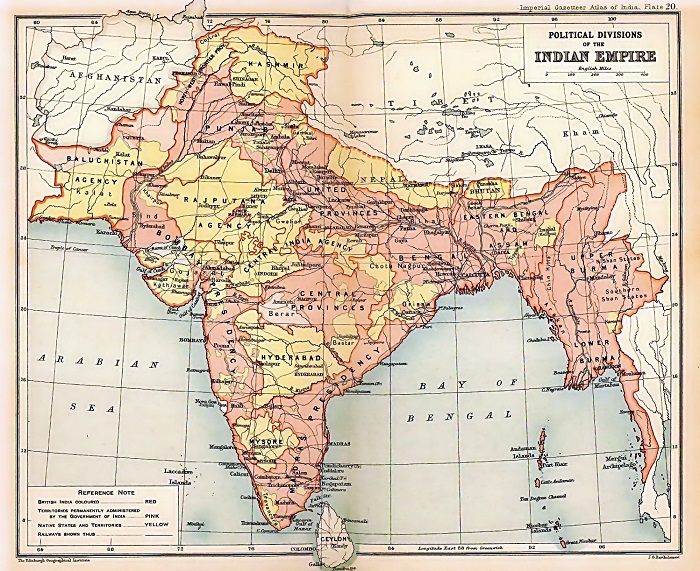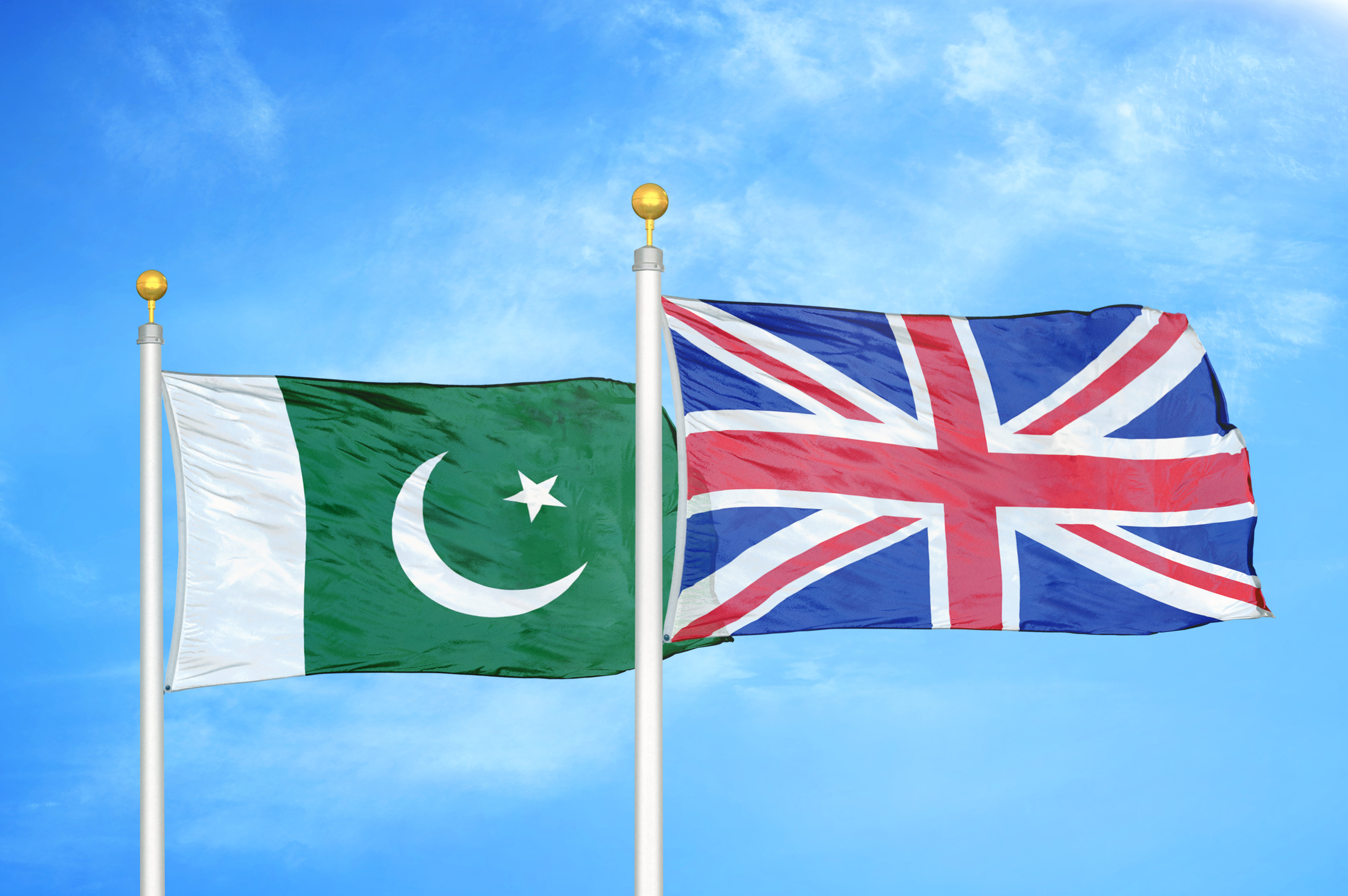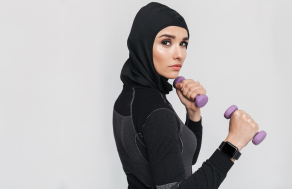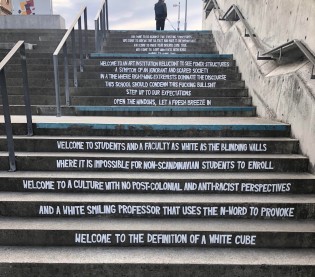Twenty-one years ago, I came to Britain from Pakistan to start a new life. I had some ideas about this country through reading novels and hearing stories of ex-pats. Great Britain, in my mind, was always associated with the British Raj. The Raj has left a profound mark on the Indian Sub-Continent including partition, division and deep-rooted colonial culture.
 A 1909 map of the British Indian Empire, showing British India in two shades of pink and the princely states in yellow
A 1909 map of the British Indian Empire, showing British India in two shades of pink and the princely states in yellow
I am not sure if people understand the process of migration unless they become a migrant. It’s like your whole existence is tested and, the biggest question is, where do you belong?
In the changing world, everyone’s identity became a question.Most migrants are continually seeking and trying to have a sense of belonging in the new country, whether it’s in the world food aisles of supermarkets or multicultural festivals. I did not choose a good time to become a migrant: it was the year 9/11 happened, and the whole world changed forever. In the changing world, everyone’s identity became a question.
Here I was with many internal and external dilemmas. I wanted to be integrated into the new culture and had to work very hard. In reality, integration is a two-way process, however, quite often, responsibility is left only with migrants. They have to improve their language skills, and change their lifestyle to become more compatible with the new environment. No one understands that in this process, they can lose a big part of themselves. I understood why people from ethnic minority communities resist change.
In the changing world, I was trying to find a way to connect and belong. My first point of contact was my community. That should have solved my problem, but really it was way more complex than I thought. My community and I had a distance of years. They got stuck in their time of migration, and, as a new migrant, I was a misfit.
In search of belonging, I discovered a new self in me. First of all, to belong anywhere, we have to belong to ourselves first. It includes full acceptance of who we are. We don’t have to behave in a certain way to become part of a community. If we have to change our way of thinking and lifestyle to be part of any community group, we may externally be part of that, but the internal crisis will always haunt us.
By meeting with colleagues from India, Pakistan, Bangladesh, Nepal and Sri Lanka, I realised that we all share history, art, music.I was fortunate to work in a place where I was exposed to various cultures. I started to experience the richness of the South Asian culture differently. By meeting with colleagues from India, Pakistan, Bangladesh, Nepal and Sri Lanka, I realised that we all share history, art, music. We have similar experiences, interests and challenges. I felt I wasn’t just part of one community group, I belonged to a much bigger and diverse world. I was able to make the connection between the past and present. If we don’t know where we are coming from, we can’t move forward.
Due to my work experience in the social care sector, I witnessed institutional barriers and limitations which pose challenges to migrants. In some cases, restricted access to services due to their immigration status can make them feel like outsiders. That’s why institutions have to be creative to promote diversity and bridge the gaps.
After 20 years, I can say it has been a remarkable journey. I chose to make a home in Britain. Although I am proud of my Pakistani and South Asian heritage, I do belong here. Sometimes, we have to create or find a place where we belong. I think we shouldn’t be living somewhere we don’t belong.
At the time of writing, Anila worked for Shakti Women's Aid in Edinburgh. This organisation helps BAME women, children and young people who are experiencing, or have experienced, domestic abuse from a partner, ex-partner and/or other members of their household.






Rate and Review
Rate this article
Review this article
Log into OpenLearn to leave reviews and join in the conversation.
Article reviews